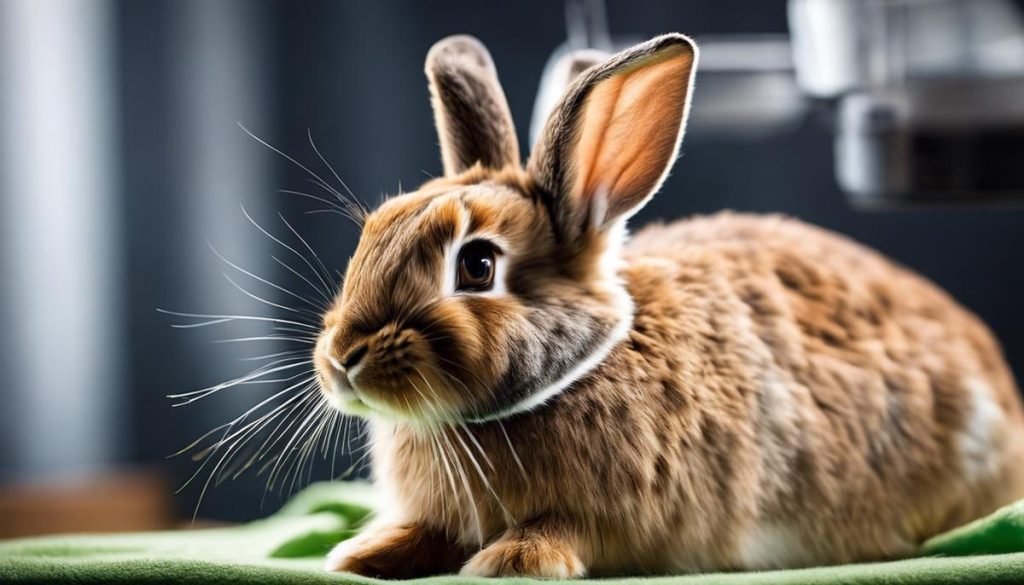Rabbits, like all pets, require delicate and special attention to keep them healthy and happy. This includes maintaining a clean surrounding and frequent grooming. A topical concern among rabbit owners is the use, or mis-use, of Dettol in rabbit care. Thorough knowledge of Dettol, its features, uses, and potential risks, particularly for sensitive animals like rabbits, is important. It is also beneficial for pet owners to be cognizant of safe alternatives to Dettol for rabbit care, along with additional general tips for maintaining rabbit health and hygiene. This sets the stage for our discussion exploring the various facets of rabbit care, especially in the context of using Dettol.
General Health Precautions for Rabbits
What a joy it is to share our homes with rabbits, those little bundles of fur with their twitchy noses and long, floppy ears! However, these cute balls of fluff need proper care to ensure they remain happy, healthy, and full of spirit. It’s crucial to understand that bunnies, just like any other pets, are a responsibility. We need to make their health a priority. Let’s delve into the essential health precautions we should consider for our adorable, long-eared friends.
Firstly, it’s essential to make sure our rabbits have a balanced diet. A mix of hay, fresh vegetables, water, and occasional treats should keep them content and healthy. Hay, especially timothy, orchard hay, or brome, should make up about 70% of their diet as it’s essential for their digestive system and dental health. Fresh vegetables can be offered in smaller amounts, with an emphasis on leafy greens. High-sugar fruits and specialized rabbit treats should be provided in moderation as a special treat.
Secondly, it’s crucial to take rabbits for regular check-ups with a vet, preferably one who specializes in small mammals or is experienced in rabbit care. These animals can be delicate and are known to hide their illnesses until they are quite advanced so regular veterinary care becomes increasingly important. Vaccinations, dental checkups and, if necessary, spaying or neutering should be a part of their routine medical care. Apart from this, a clean living area which allows ample movement for exercise and mental stimulation is also elemental for their wellbeing. Take these steps to ensure that your rabbit leads a healthy, long life, full of those delightful binkies that melt our hearts!

Understanding Dettol and Its Main Uses
Shifting gears a bit, let’s talk about something equally important – the cleanliness and hygiene of your environment, especially when you have little ones or pets at home. One widely recognized product in this context is Dettol. But what is Dettol exactly and how is it typically used?
Hailing from the United Kingdom and marketed worldwide, Dettol is a branded disinfectant that has established its place in every household for nearly a century. An antiseptic through and through, Dettol is made from a blend of modern-day cleaning chemicals like chloroxylenol, pine oil, castor oil, isopropanol, water, and soap. This potent combination helps take down an array of germs and bacteria that can be harmful to us.
Typically, Dettol is used for personal cleanliness and hygiene in various forms such as soaps, liquid antiseptics, and cleaning wipes. You can find Dettol in most households as a go-to for cleaning wounds, disinfecting surfaces, washing clothes, and even as part of personal hygiene routines. It’s a versatile and trusted solution when the goal is to eliminate potentially harmful bacteria from your living space. So whether you’re treating a scraped knee or ensuring your little bunny’s living quarters are clean and germ-free, Dettol has become a household staple for many families who value cleanliness and the well-being of each family member, including our furry friends.

Risks of Using Dettol on Rabbits
While it’s no secret Dettol plays a monumental role in our day-to-day cleanliness and hygiene, its use on pets, most especially rabbits, remains a widely debated topic. As engaging as the idea of having a one-stop solution for all cleansing needs may sound, it’s essential to understand the unique makeup of Dettol and how it impacts our fluffy friends, the rabbits specifically.
Composed primarily of Chloroxylenol, Dettol has outstanding antiseptic properties, making it a go-to for wound cleaning and disinfecting surfaces. But this same ingredient makes it unsafe for our rabbits. The reason? Chloroxylenol can be abrasive to a rabbit’s delicate skin and mucous membranes. As anyone well-versed in rabbit care will tell you, the skin of a rabbit is incredibly thin and therefore provides less protection than that of other animals, making it susceptible to harm from harsh substances.
Lastly, it’s important to recall that the strong scent of Dettol is a turn-off for most rabbits. Residue left behind from Dettol cleaning on eating surfaces, toys, or rabbit’s fur can discourage them from their usual activities, leading to reduced food intake or play, which is detrimental to their overall health and happiness. So, instead of using Dettol, opt for pet-safe cleansers recommended by your vet for cleaning your rabbit’s living areas and toys. Remember, it’s all about making the environment safe, clean, and enjoyable for our little hoppers.

Safe Alternatives to Dettol for Rabbit Care

Tips for Maintaining Rabbit Health and Hygiene
Expanding our dialogue, let’s delve into another important aspect of keeping these adorable bunnies healthy, which circles around their grooming. Brushing them regularly, preferably with a soft bristle brush or a grooming mitt, is a brilliant means of maintaining their sumptuous fur and preventing hairballs from building up in their stomach. This simple grooming exercise not only adds to their general cleanliness but also fosters an endearing player in your bonding moments with them.
To step up their hygiene game, keeping an eye on your rabbit’s bottom is notably important, assuming that digestive disorders, can cause sticky droppings which can adhere to their fur, leading to a condition known as, well, a “dirty bottom“. This can attract flies and lead to a potentially serious condition known as flystrike. Hence, ensure you change their litter regularly and clean their bottoms by gently wiping with pet-safe, unscented baby wipes.
Just as Dettol or Chloroxylenol have adverse effects on rabbits so we ought to keep them at bay, there are also other substances that rabbits should equally steer clear from. A case in point is their drinking water. Avoid tap water treated with chlorine or fluoride. Instead, consider giving them filtered or bottled water. Their hydration is as important as their nutrition and it falls right into ensuring them a healthy and enjoyable life.
On the home stretch, it’s quite impressive how far you’ve come along in understanding the best methods to care for these loveable creatures. Turning these tips into practice will certainly ensure your blossom of bunnies thrive in a cleaner, safer, and healthier environment. Isn’t it incredible how such simple steps culminate into caring for these little critters? Of course, that’s our shared goal, bonding over bunnies, one hop at a time.
Please remember to consult your vet or trusted rabbit care experts on any questions or concerns. After all, maintaining a thriving environment for your furry friends is indeed a community effort. Together, we can make our homes a haven for these awesome, hoppy friends.

As loving and responsible pet owners, it is crucial to always be informed about our actions and the products we use in caring for our pets. The safe alternatives to Dettol for rabbit care, as discussed, provide excellent options to maintain cleanliness without introducing potential harm to rabbits. Combined with best practices for diet, exercise, grooming, and housing, these alternatives pave the way for maintaining a healthy, vibrant life for our rabbits. The understanding of the effects of Dettol on these small, delicate creatures is vital. Armed with this knowledge, one can make informed decisions about rabbit care and ensure our furry companions experience the best quality of life possible.



